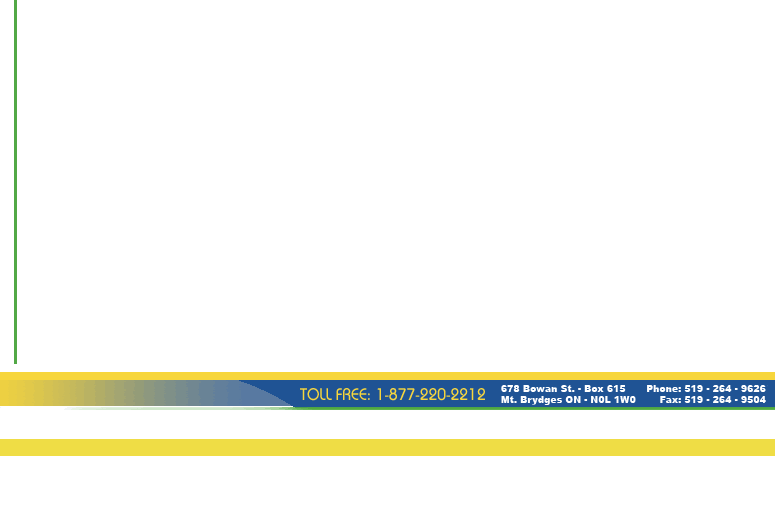Maximum
Swine
Marketing Ltd. Newsletter
Hog Commentary for
September 16th 2004
Hog Markets
The cash price for hogs has been stronger since the long weekend.
Prices hit a bottom on Wednesday after the long weekend and
have been moving higher since that time. This follows the trend
that we expect cash prices would drop in to the long weekend
and recover thereafter. The increase in price last week is remarkable,
not just because of the short week, but because packers killed
400,000 hogs on consecutive days for the first time ever. Slaughter
is expected to continue in t he 2.050 to 2.100 million head
per week range for the next few weeks. At this pace, both cash
prices and cutout values can be expected to post small but steady
gains.
The Oct lean hog contract continues to trade at a discount to
the cash price should the cash price of hogs remain steady to
higher, the Oct contract will have to add $5-6.00 between now
and its October 14th expiration. If that happens, the Oct contract
would trade at a new contract high, and join the Dec, Feb, May,
Jun, Jul, and Aug contracts, all of whom hit contract highs
in the month of expiry. It is likely that the Dec Contract will
also hit new contract higher at the same time as the Oct contract.
The Dec contract is $0.50 from its high of early August, and
will have to put in new highs if it is to maintain its spread
to the Oct contract.
Feed
Markets
Cash corn priced continued to drop for new crop delivery periods
following the release of USDA Supply/Demand numbers late last
week. Corn production for the 2004/05 crop season was estimated
at 10.961 billion bushels up from 10.923 in the August report.
Ending stocks were also increased to a projected 1.209 billion
versus 1.132 reported in Aug. Spot corn supplies continue to
diminish as late harvest across most of the Midwest and northern
plains delay delivery of new product. An extended growing season
aided by improving weather conditions over the past two weeks
has increased expectations for final yields with every frost
free day contributing to further gains in supply and losses
in the futures. End users of corn should anticipate further
downside in the weeks ahead, however as more corn acres are
harvested, yields will dictate the direction of price.
Soymeal prices were lower again this week as new crop futures
pull spot prices downward. Frost in the major bean producing
regions of the US was avoided over the past week allowing further
filling of soybean crops and predications of higher yields later
this year. Bearish production numbers released by the USDA were
unable to support the market late last week after they reported
final production at 2.836 billion bushels. This is below last
months estimate of 2.877 billion. Basis levels remain firm from
most crushers, as supplies are tight ahead of new crop deliveries.
The late harvest of soybeans will likely cause an unfavorable
basis through the first half of October. However, once supplies
have been replenished hog producers should look for increased
competition to lower spot delivered prices.

